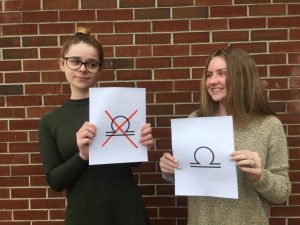Stars doesn’t equal science
March 4, 2019
The study of astrology brings an abundance of horoscopes: the forecast of a person’s future based upon the relative positions of the stars and planets that accompany each of the twelve zodiac signs. However, believing what one reads from a tiny paragraph about their life should not hold such strong significance. With a variety of different horoscope apps, magazines, and newspapers, the continuity of the content of horoscopes simply does not match up. One app could say something about how the next week of one’s life will completely change for the better, while in a newspaper it could say the complete opposite. It becomes difficult to believe what horoscopes say when they lack consistency in their content. While it may bring joy to those who take pleasure in reading horoscopes, they create a sense of false hope for gullible readers. Basing any life decision, especially major ones, on constellations thousands of lightyears away makes absolutely no sense. Stars cannot predict the future; their alignment alone cannot dictate future marriages or career pathways.
The generalization of horoscopes also makes them applicable to whoever reads it. Psychologists discovered the Barnum Effect, named after circus tycoon P.T. Barnum, which reflects the tendency for people to accept certain information as true, such as character assessments or horoscopes, with only vague information. Gullible horoscope readers will take whatever they read and think it only applies to themselves. Readers should take into consideration that more than one person reads the horoscope assigned to their zodiac sign, making their daily fortune unspecial.
To keep up with reading a daily horoscope, one must also take more than just their zodiac sign into consideration. According to Study Breaks, readers should focus on the horoscope assigned to their rising star sign, not their sun sign. Also, most mainstream newspapers and apps do release daily horoscopes for rising star signs, so pursuing a different category of star signs becomes a waste of valuable time.
While astrology targets deciphering how celestial bodies affect humans and the natural world, the concept seems absolutely ridiculous. Overall, horoscopes would need to become more specialized in order to eliminate the generalization that they entail. Even though the study of astrology began back in 1894 BC, its modern adaptation into horoscopes can send readers down a hole of believing everything they read. The sucker punch readers receive after believing the unrealistic nature of horoscopes truly makes horoscopes an unreliable source of happiness and hope.








